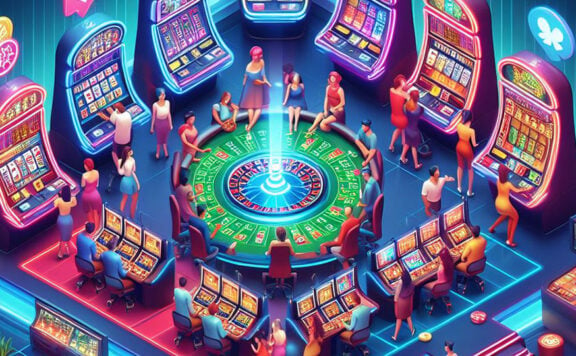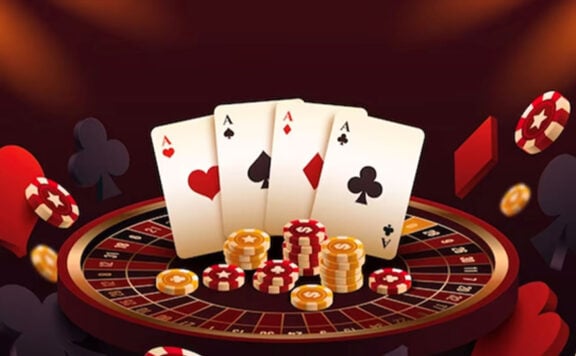Source: Unsplash
Gaming is a very versatile form of entertainment, as different genres attract different player types. It has become like a movie industry, and anyone can find something they like. It is also becoming increasingly accessible. Anyone with a phone can game or gamble online nowadays. Moreover, it’s easier to make deposits, and you don’t really need a bank account to transact online. You can find a list of online casinos where you can deposit by phone bill and play all the games you like. Additionally, the gambling industry is constantly innovating and following trends in order to attract more players.
The price of games is also dropping. Digital marketplaces have big sales and discounts each month, and AAA titles are sold at a significantly lower price. Online casinos, on the other hand, have ongoing bonuses. Nowadays, it’s possible to get hundreds of free spins and chips even without making a deposit. Furthermore, players can find reliable operators and learn more on the Wagering Advisors website if they wish to know what each of those operators has to offer. Here we will focus on the psychology of the players. Specifically, we will talk about personality types and how they affect gaming preferences.
Bartle Taxonomy
Professor Richard Bartle created a chart that categorises players based on what they want out of games. This classification is called Bartle Taxonomy, and it recognises 4 main player types or preferences.
- Achievers – Those who love to overcome challenges, solve puzzles, and fully master the game they enjoy.
- Explorers – Those who love to explore vast virtual worlds, find easter eggs, uncover secrets, and learn about lore.
- Socialisers – Those who play because they enjoy the social aspect of the game. They love teamwork, coordination, and sharing their passion for this hobby with others.
- Killers – Those who love to compete against other players, beat them, and even mock them.
Catering to Different Player Types
A lot of big releases really try to cater to all of these player categories. Big in game worlds, online PVP modes, achievement notifications, and difficult optional bosses are all common in AAA titles. Even gambling businesses try to cater to all of these types to an extent. If you look at the casinos with highest payouts they host diverse content that these player types will find appealing.
Blackjack – Single-player strategy card game that attracts achievers and card counters
Online poker – Attracts competitive pro players or “killers”
Live dealer – Attracts socialisers and achievers
There isn’t any specific content that would cater to explorers, but you could argue that slots with different themes do have neat easter eggs. So, players who are attached to certain IPs will try them out to see how designers have incorporated those iconic elements into slot mechanics.
MMORPGs like World of Warcraft were a massive success during the 2000s because they had something for everyone. Not only that, but this MMO promoted cooperation between all types. Over time though, this has changed and games that focus on providing superior experiences to specific profiles of gamers. This meant that users flocked to these other titles that better met their specific needs.
- Killers usually opt for titles like Fortnite, CS:GO, League of Legends, Street Fighter etc.
- Socialisers gravitate towards games like Among Us, Divinity, Baldur’s Gate
- Explorers like Minecraft, puzzle adventures, Last of Us, and Red Dead Redemption
- Achievers are attracted to Dark Souls, Elden Ring, Cuphead etc.
Superior Tools for Profiling Players
Source: Unsplash
Bartle taxonomy was created in the late 90s, and although it is an effective tool for profiling, the data gathering and analysis capabilities have significantly improved. It’s easier for companies to measure what users like and how they interact with certain features. Additionally, user experience is affected by other elements that aren’t necessarily present in the game. Data safety, payments, predictive algorithms, server stability etc., all affect how customers feel about the product or service.
However, even with all of these tools and features, it seems that the player sentiment towards newer games is negative. We live in a world where esports is at its peak, where communication tools work better than ever, where narratives are complex, and graphics more polished than ever. Yet, player feedback is often negative, and expectations are very high. Players often feel that their preferences are used against them by the corporations that publish games.
The industry has attracted many investors and, as a result, more stakeholders. Many of these stakeholders were primarily interested in monetisation and ROI. Microtransactions, DLCs, purchasable cosmetics and subscriptions are common in AAA releases. It’s also common for companies to sell quick level-ups or power, which diminishes the value of time and effort invested by Achievers.







